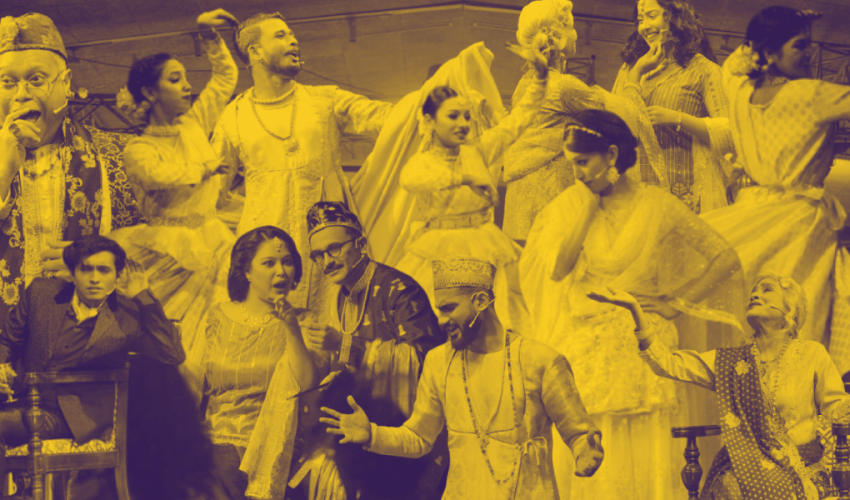Begum’s Blunder was the immersive experience Dhaka didn’t know it needed
By Tarin Fatema
The rain-soaked evening couldn’t dampen the spirits of the audience gathered at the Nilima Ibrahim Auditorium of Bangladesh Mahila Samity in Dhaka, for the final performance of Begum’s Blunder. As the clock struck 7:30pm, the play began with loud cheers and applause filling the air.
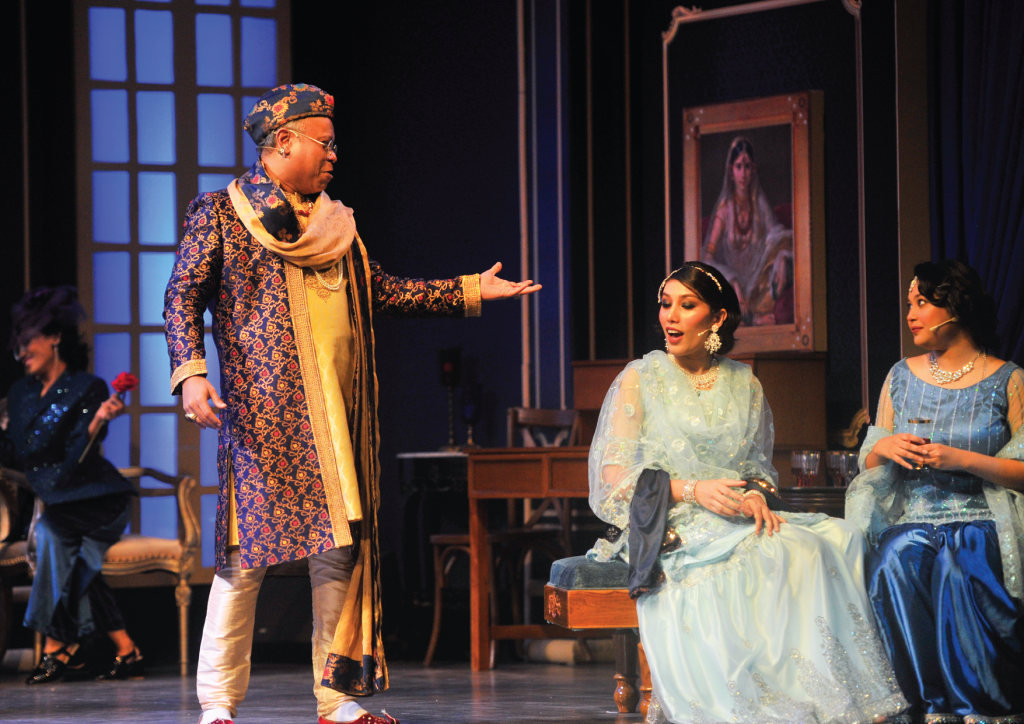
Naila Azad Nupur’s adaptation of Oscar Wilde’s classic takes place in the glittering world of 1920s Bengal, where the elite class whiles away their time in idle gossip at extravagant parties. In Wilde’s story, Lady Windermere suspects that her husband is having an affair with another woman. When she confronts him about it, he denies it, and invites the infamous Mrs Erlynne to his wife’s birthday ball. Angered by her husband’s alleged unfaithfulness, Lady Windermere decides to leave him for another lover. After discovering what has transpired, Mrs Erlynne follows Lady Windermere and persuades her to return to her husband. Meanwhile, Mrs Erlynne is discovered in a compromising position. The plot reveals that Mrs Erlynne is Lady Windermere’s mother who left her family twenty years before the play took place. In the end, Mrs Erlynne sacrifices herself and her reputation to save her daughter’s marriage.
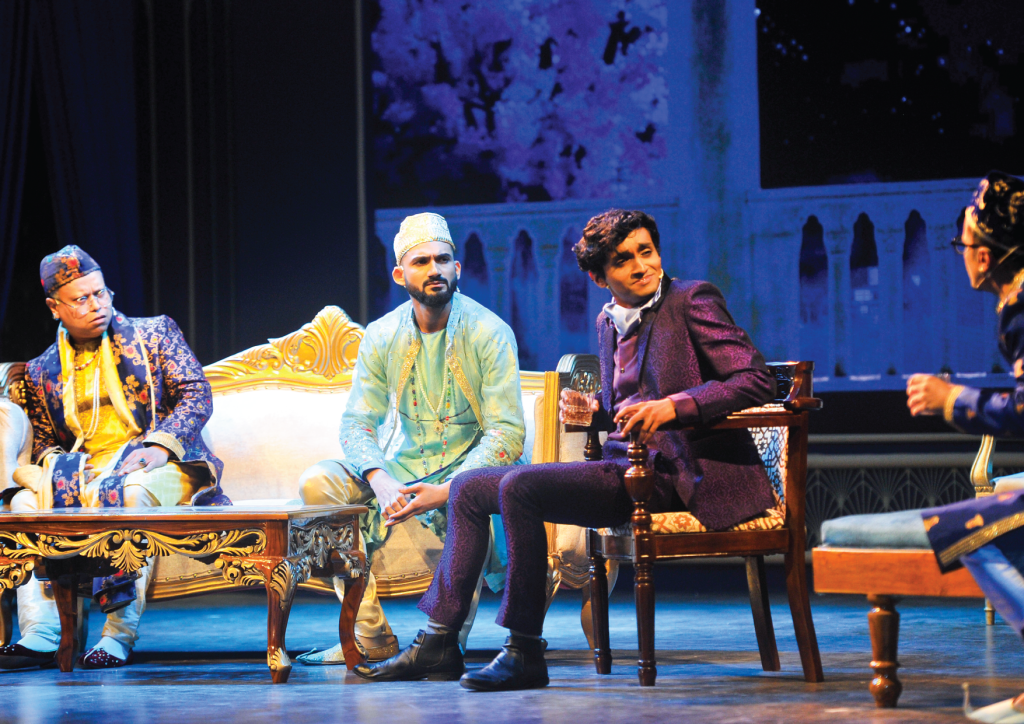
In Begum’s Blunder, Begum Mumtaz Nizamuddin brings the drama as her suspicions run rampant when the mysterious Amira Nahar Khanum crashes her birthday dinner party. The ballroom scene pulses with energy, and the climactic confrontation crackles. The blunder – a misplaced letter and a misplaced shawl – sets off a chain of events that threatens to unravel her own marriage.
Director Azad’s vision infuses the play with a heady mix of Wildean humor and Bengali flair. The Begum and her entourage speak a combination of polished Urdu, Bengali, and emphasize the accent when speaking English, while the servants speak primarily in Urdu to expertly highlight the contrast between high society and the working class.

Yet, Begum’s Blunder occasionally stumbles. Its strength, the faithful adherence to Wilde’s astuteness, also becomes its Achilles heel. The clash between traditional aesthetics and the bold adaptation creates moments of dissonance. Like a misplaced letter, the music occasionally jars against the elegance of the narrative.
The play unfolds against a backdrop of grandeur. With elaborate costumes and lavish sets, Azad brings her vision to life. Ingeniously, the same sets of furniture are rearranged to create the illusion of distinct scenes. The costumes, meticulously researched, evoke the glamor of the Roaring Twenties, while the music conveys a world where secrets are currency. The strategic manipulation of lighting to guide the audience’s attention on stage made it easy to keep up with the unfolding narrative. Azad’s clever substitution of the fan with a shawl seamlessly aligns with this rendition of the play.
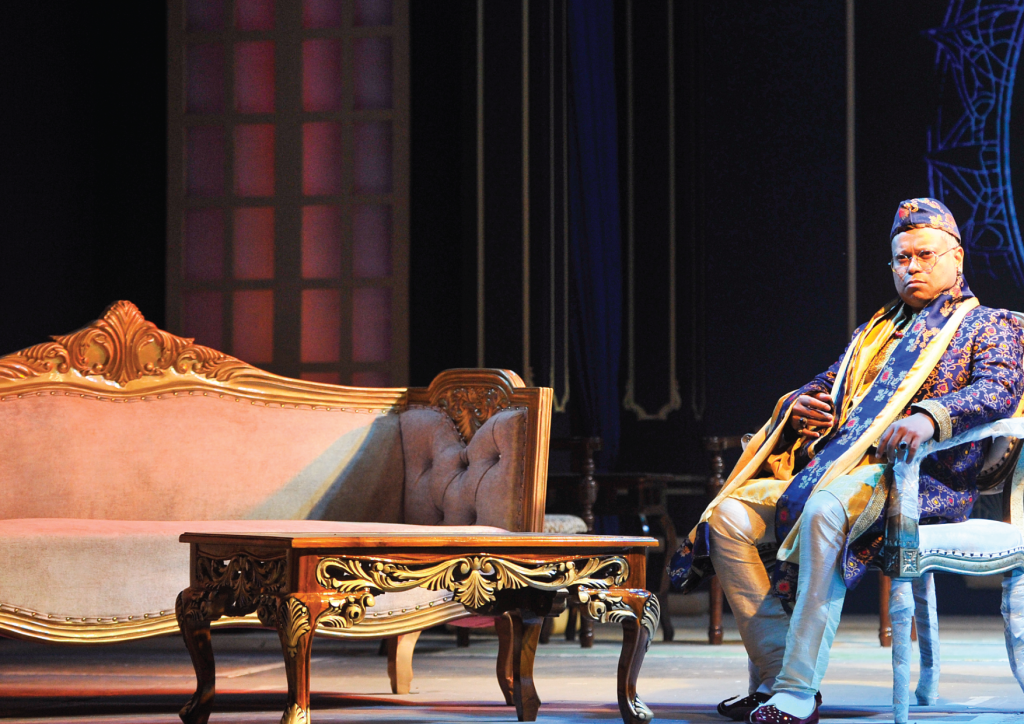
The cast delivered standout performances, a remarkable feat considering this was a stage debut for half of them. Samreen Islam made a captivating leading lady as Begum, balancing vulnerability with a subtle cunning. Her interactions with Darius Shah (played by Auyon Islam Ace) sizzled with tension. Baizid Haque Joarder was earnest in his portrayal of Aftab Nizamuddin, the picture of a doting husband, although he’s easily outshined by Akhlaq Siddiqi’s charming presence on the stage as Nawabzada Cecil Chowdhury. Warda Ashraf embodied Amirun Nahar Khanum with a sort of fragility and deceit that resonated with the audience. Meanwhile, the supporting characters – gossipy ladies, dashing gentlemen, and loyal servants – added depth and humor to the drama. When the curtain fell, the audience was left pondering if redemption could be achieved through deception.
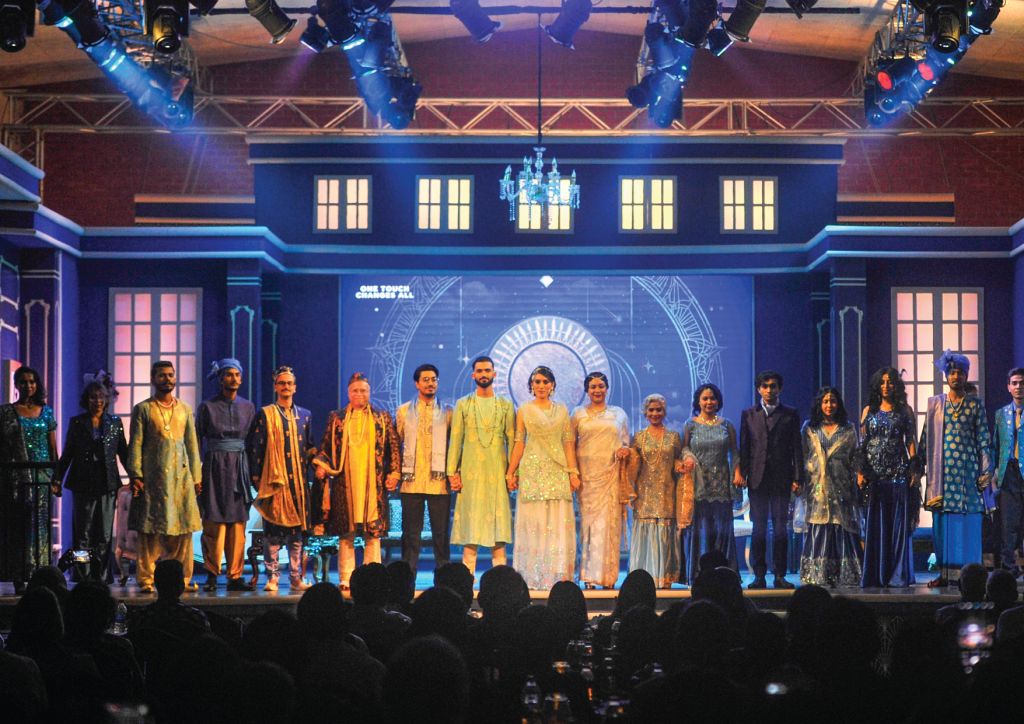
As the curtain rose once more, and the cast all gathered together for their final bow, Director Naila Azad’s playful words echoed through the houseful theater: “Who says theater is dead in Dhaka? Who says there’s no room for English plays here?” Her spirited defiance resonates, a testament to the resilience of Dhaka’s theater culture. Sadaf Saaz, the visionary producer behind this theatrical triumph, also graced the stage with a knowing smile. She acknowledged the play’s remarkable streak of consecutive sold-out performances and announced that Begum’s Blunder is far from its final act.
- mwhttps://mansworldbangladesh.com/author/mw/
- mwhttps://mansworldbangladesh.com/author/mw/
- mwhttps://mansworldbangladesh.com/author/mw/
- mwhttps://mansworldbangladesh.com/author/mw/




